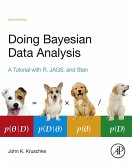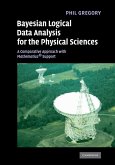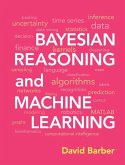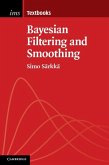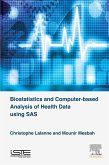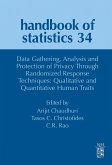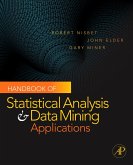There is an explosion of interest in Bayesian statistics, primarily because recently created computational methods have finally made Bayesian analysis tractable and accessible to a wide audience. Doing Bayesian Data Analysis, A Tutorial Introduction with R and BUGS, is for first year graduate students or advanced undergraduates and provides an accessible approach, as all mathematics is explained intuitively and with concrete examples. It assumes only algebra and 'rusty' calculus. Unlike other textbooks, this book begins with the basics, including essential concepts of probability and random sampling. The book gradually climbs all the way to advanced hierarchical modeling methods for realistic data. The text provides complete examples with the R programming language and BUGS software (both freeware), and begins with basic programming examples, working up gradually to complete programs for complex analyses and presentation graphics. These templates can be easily adapted for a large variety of students and their own research needs.The textbook bridges the students from their undergraduate training into modern Bayesian methods.
- Accessible, including the basics of essential concepts of probability and random sampling
- Examples with R programming language and BUGS software
- Comprehensive coverage of all scenarios addressed by non-bayesian textbooks- t-tests, analysis of variance (ANOVA) and comparisons in ANOVA, multiple regression, and chi-square (contingency table analysis).
- Coverage of experiment planning
- R and BUGS computer programming code on website
- Exercises have explicit purposes and guidelines for accomplishment
Dieser Download kann aus rechtlichen Gründen nur mit Rechnungsadresse in A, B, BG, CY, CZ, D, DK, EW, E, FIN, F, GR, HR, H, IRL, I, LT, L, LR, M, NL, PL, P, R, S, SLO, SK ausgeliefert werden.



